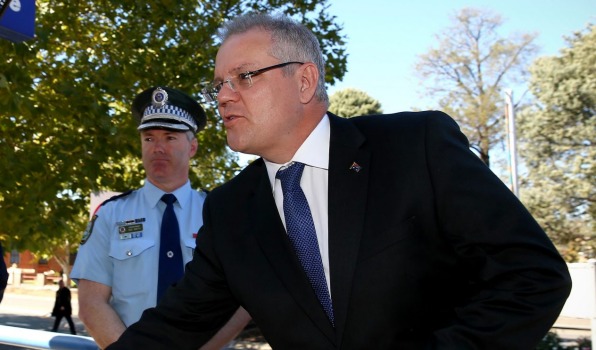
Posted on: 1 May 2016
No tax increase on super funds' capital gains, says Scott Morrison
"As the Property Council of Australia noted this week, there are 891 Anaesthetists and 1020 Surgeons who negatively gear, but largest affected would be the 6980 cleaners and 42,938 nurses and midwives who also do."
Superannuation funds' capital gains won't be taxed more in the budget.
Treasurer Scott Morrison scuppered on Wednesday earlier speculation the Coalition was planning to halve the one-third capital gains tax discount for super funds.
While at the weekend the government ruled out changes to negative gearing or capital gains tax in next week's budget, it was unclear if the capital gains statement applied to super funds as well as individuals.
Asked on Wednesday if he could rule out changes to the tax on capital gains in super funds, Mr Morrison said "yes".
He was visiting a NSW police station to promise federal funding to fix a state government policy change that had the unintended consequence of forcing officers to pay more tax on their super.
He attacked Labor's plan to restrict negative gearing to new homes and increase taxes on capital gains from the sale of assets such as property.
Labor was seeking to "punish and penalise" the one in five police officers who used negative gearing, he said.
"Labor likes to tell you that negative gearing is something for the highfalutin.
"The truth is more than 13,000 serving Australian police officers negatively gear. We won't be having a bar of Labor's housing tax."
Recurring issue
Voters can expect negative gearing to be a recurring issue in the federal election campaign.
The Centre for Independent Studies weighed into the debate by saying the abolition of negative gearing would be regressive.
That is, the change would hit low-income earners harder than high-income earners.
Those in the bottom 10 per cent of earners, where the average taxable income in 2013-14 was $3542, would no longer be able to have access to $741 in deductions, or the equivalent of 20.9 per cent of their taxable income.
But somebody in the top 10 per cent of earners, with an average taxable income of $200,790, would be denied $2435, which is only 1.2 per cent of their taxable income.
"The proportional benefit of negative gearing is substantial at low-income levels," Mr Potter said.
Matt Grudnoff, a senior economist with The Australia Institute, rubbished that statement.
"No one in Australia 'lives' on $3500 per year and anyone that tried would be unable to get a mortgage," he said.
Massive tax deductions
"The fact that people with low incomes have mortgages is proof that they either have massive tax deductions, undeclared income from other means or are being supported by someone who does.
"The idea that people 'living' on one-third of the unemployment benefit, less than $100 per week, are buying investment properties is as ridiculous as the claim that reining in a tax concession that delivers 50 per cent of its benefits to the top 10 per cent of income earners is regressive."
In February there were reports the Coalition was contemplating halving the one-third discount on capital gains tax charged on superannuation funds, which would effectively increase tax on pre-retirement earnings from 10 per cent to 12.5 per cent.
Prime Minister Malcolm Turnbull fuelled speculation about a change when he told Parliament: "The tax on superannuation funds' earnings, in the accumulation phase, whether it is regarded as income or capital, is remarkably low. It is very, very concessional."
The row over negative gearing will be a significant feature of the election campaign.
As the Property Council of Australia noted this week, there are 891 anaesthetists and 1020 surgeons who negatively gear, but 6980 cleaners and 42,938 nurses and midwives.
Proportional terms
What the council does not point out is that there are vastly more cleaners and nurses than anaesthetists and surgeons. In proportional terms, nearly 30 per cent of all anaesthetists and surgeons negative gear, while fewer than 10 per cent of nurses do.
Anaesthetists also claim a much bigger deduction on average.
Mr Morrison and the Property Council also point to the fact that 770,000 people who negative gear have taxable incomes of less than $80,000 a year.
But 80 per cent of the population has a taxable income of less than $80,000. And it is important to remember that one of the key reasons people engage in negative gearing is to reduce their taxable income.
"The nine out of 10 taxpayers do not negatively gear, in effect, pay higher taxes to subsidise the investments of the one in 10 who do," Grattan Institute chief executive John Daley said.
By Joanna Mather
http://www.afr.com/news/policy/budget/no-tax-increase-on-super-funds-capital-gains-says-scott-morrison-20160427-gog64h